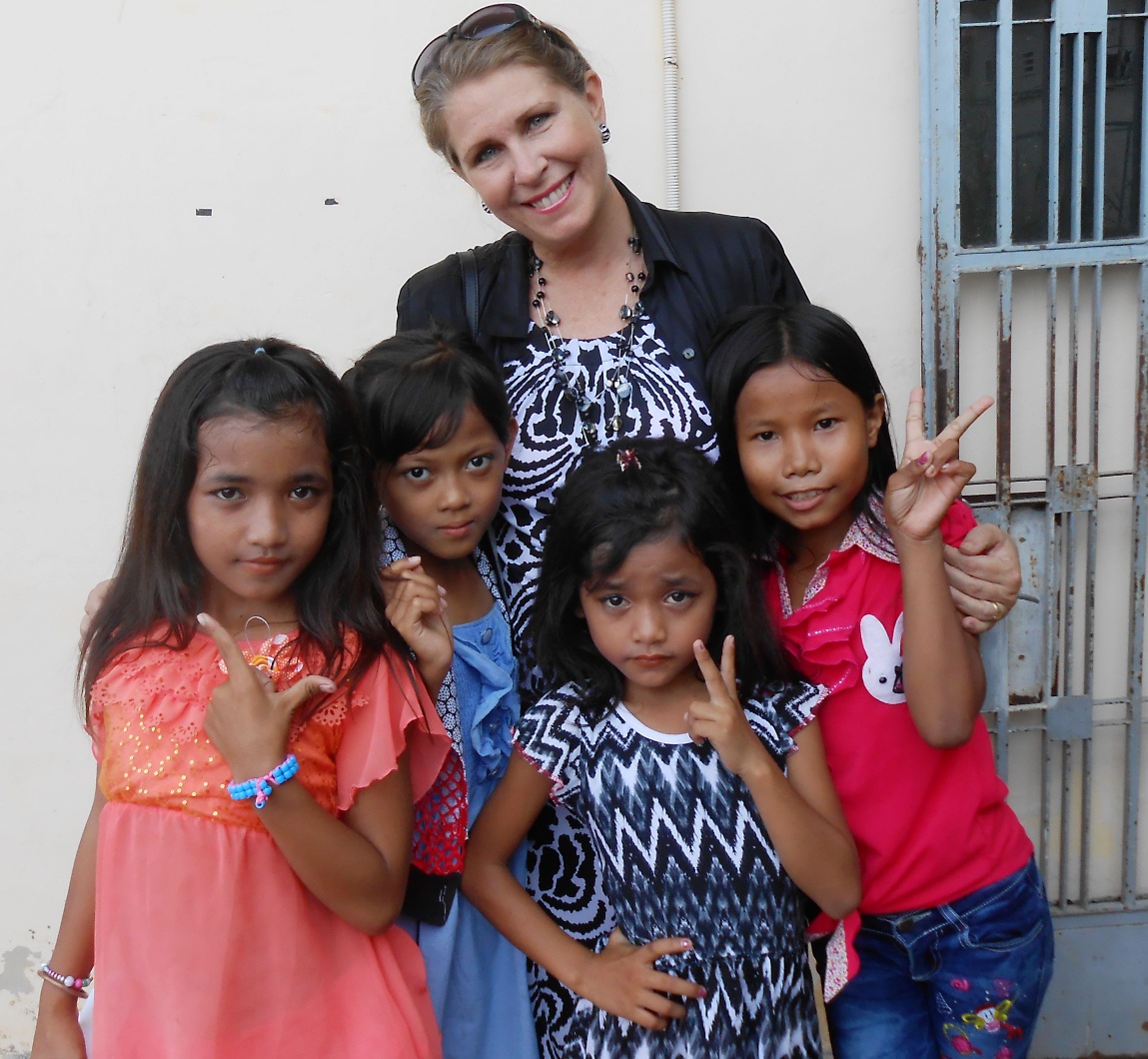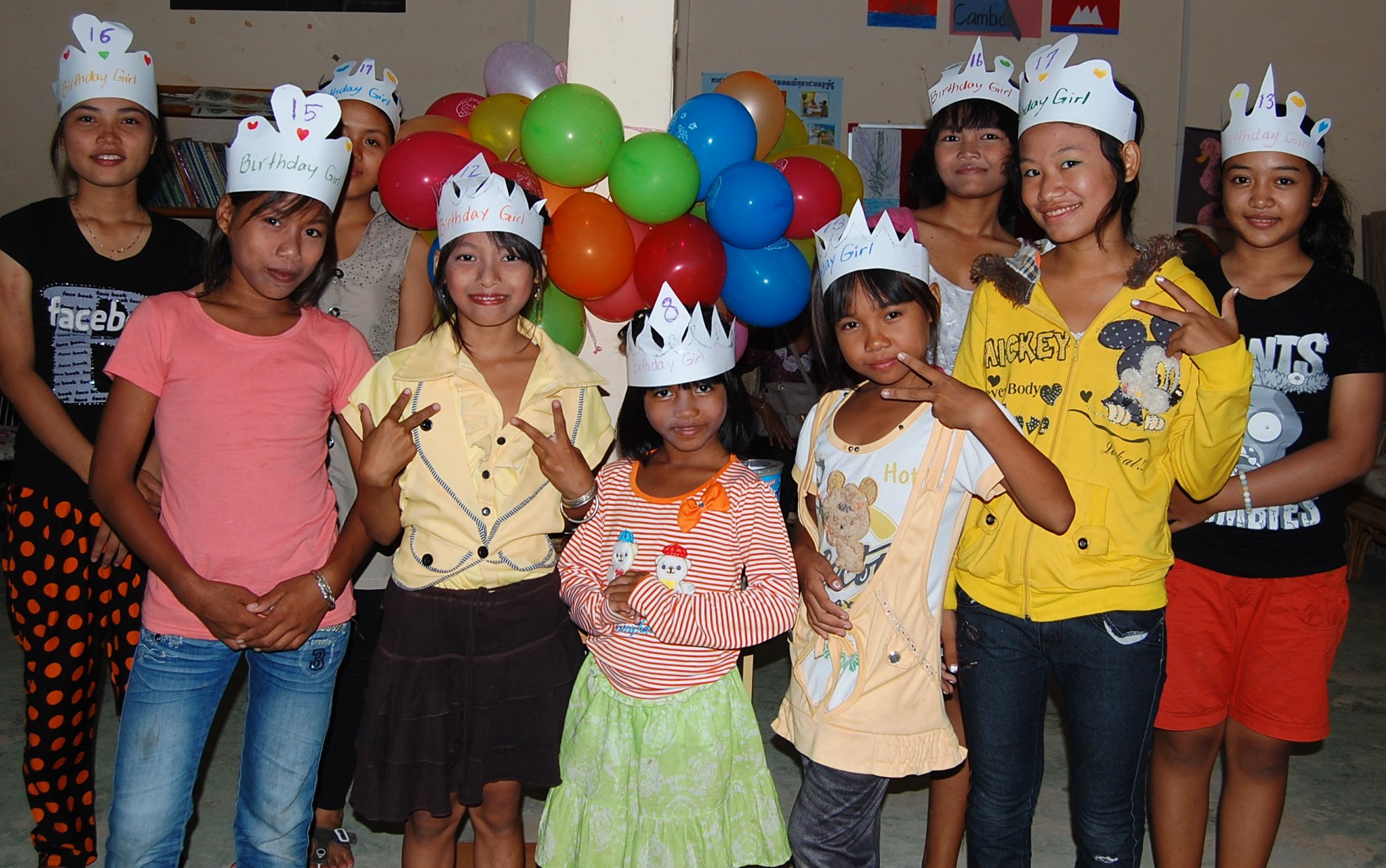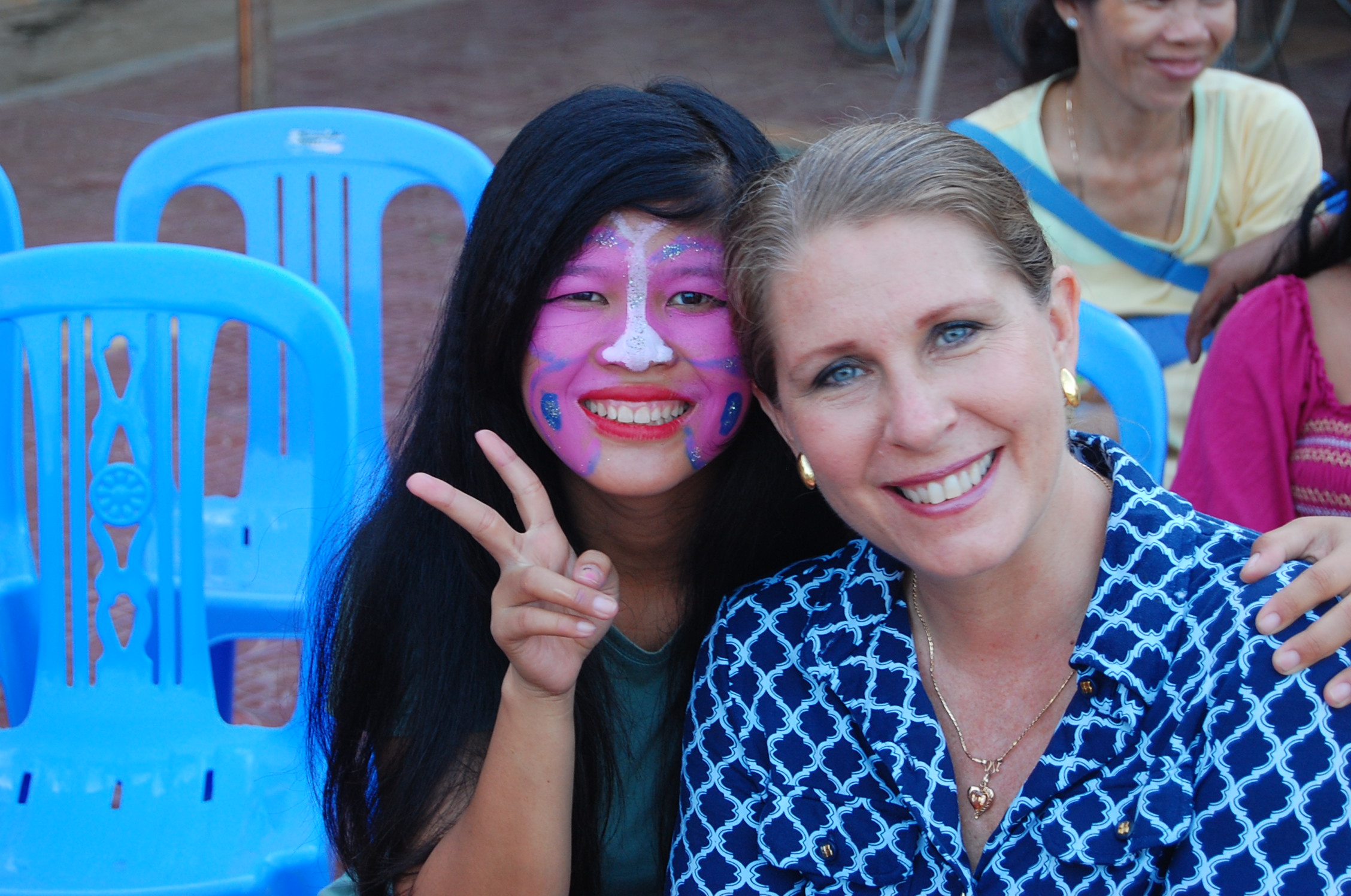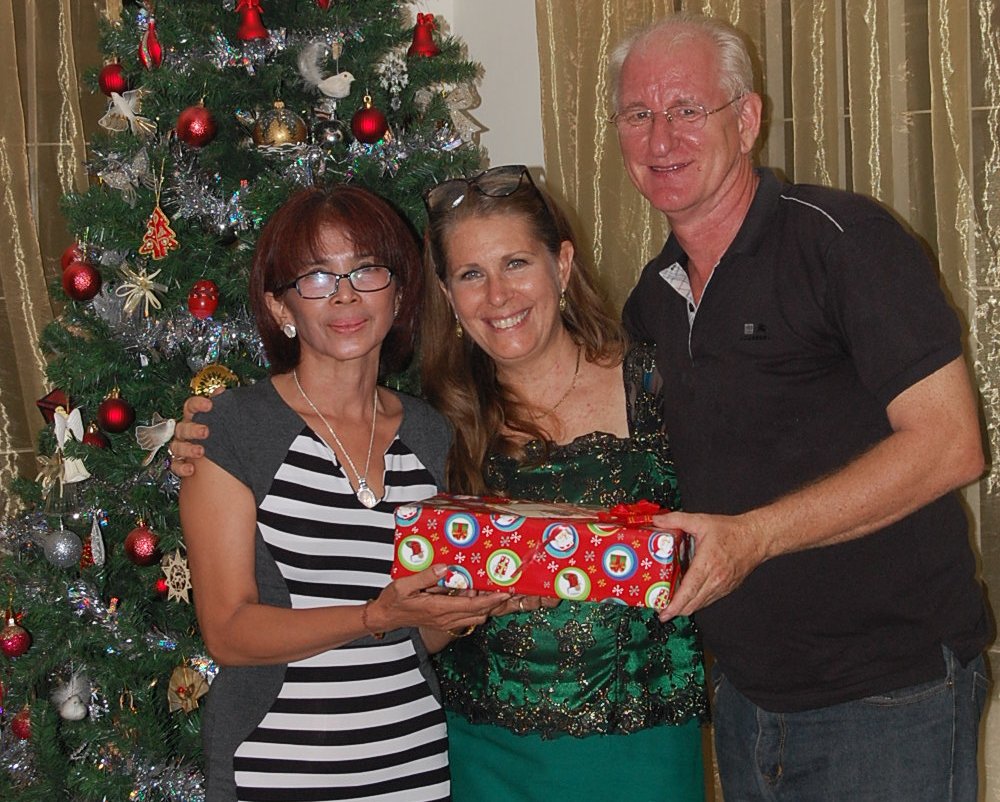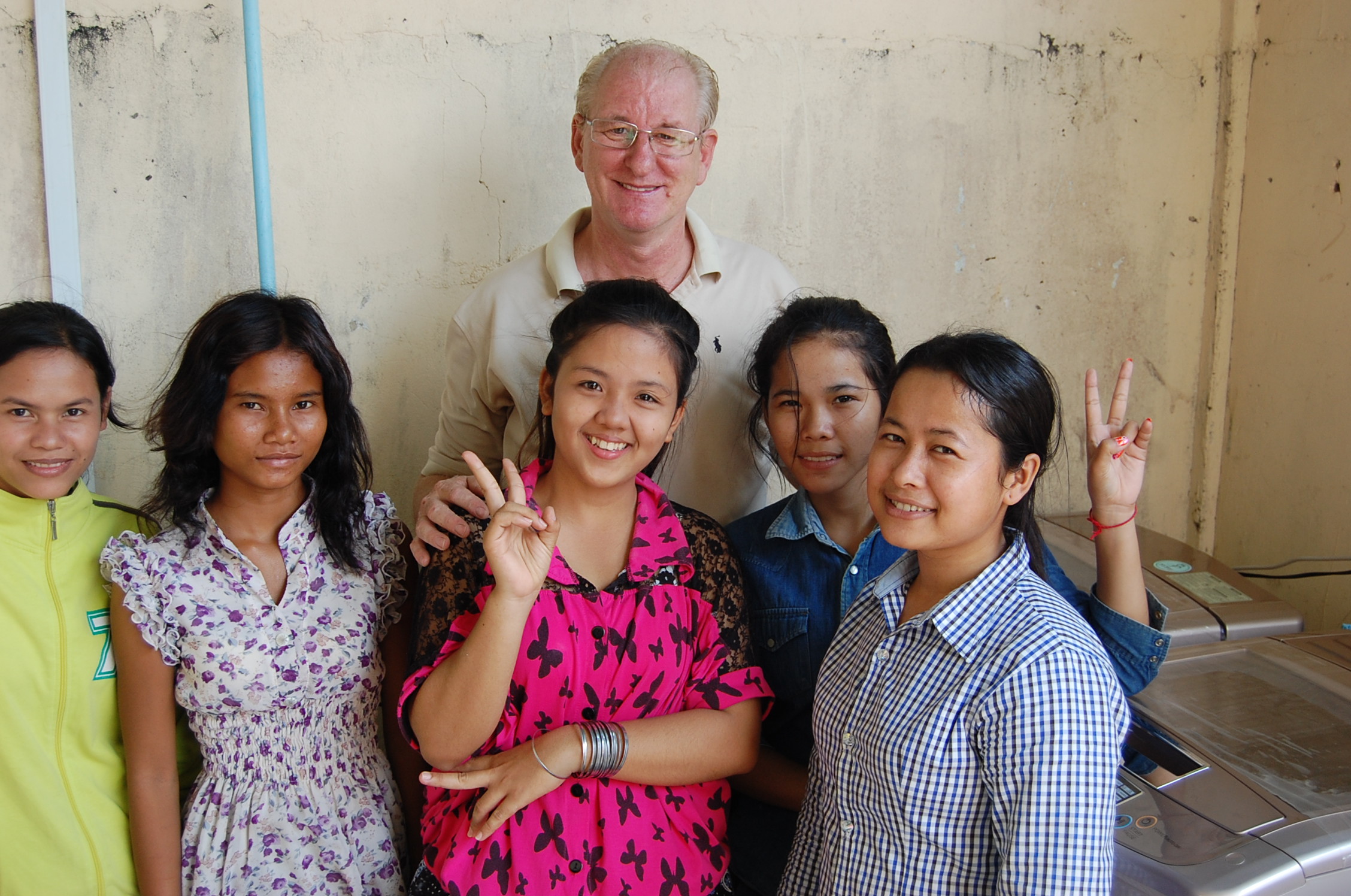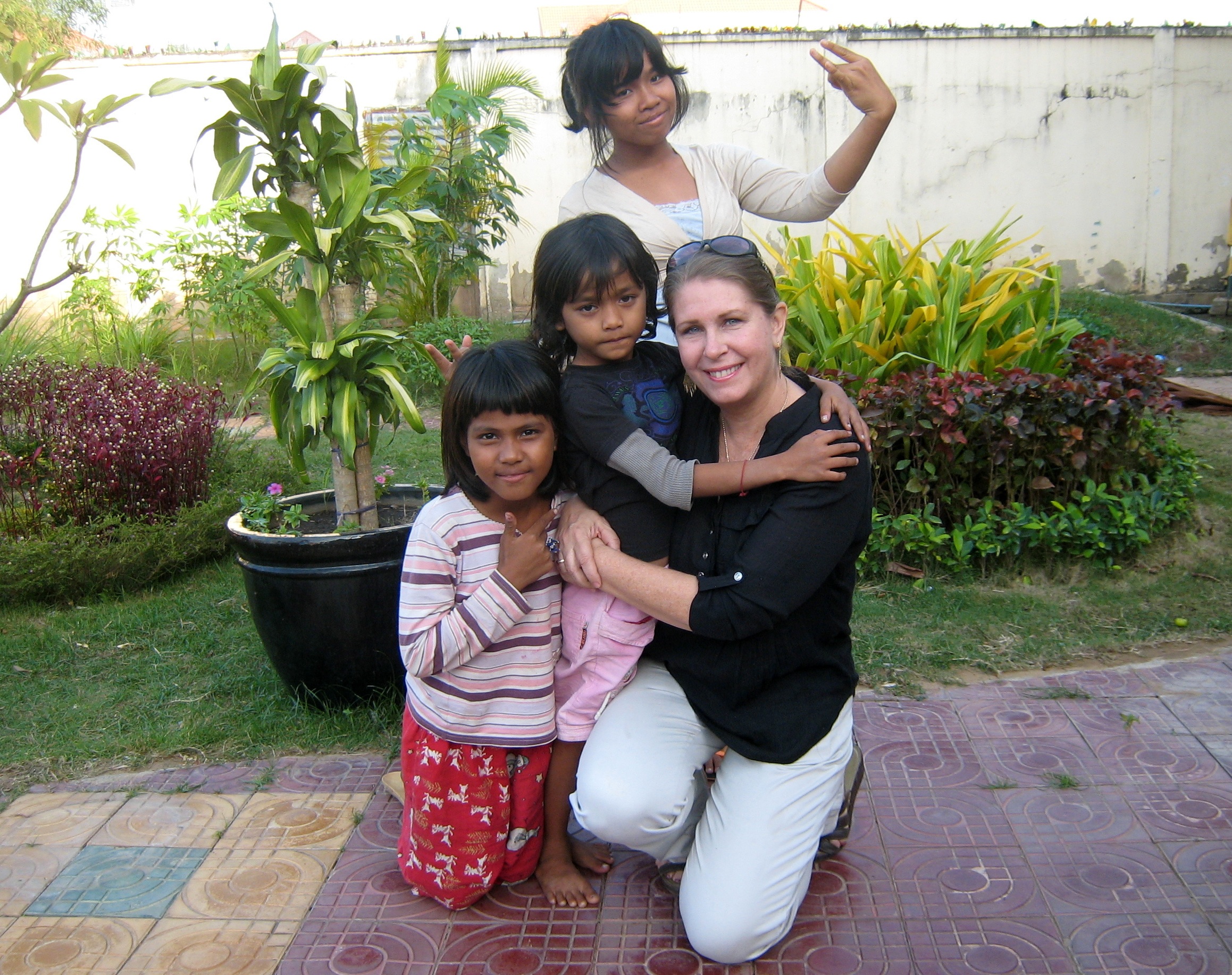Summary:
Few people are more vulnerable and in need of assistance than young girls subjected to domestic violence, sex abuse or human trafficking. Since 2004, we have assisted the CCPCR rescue shelter in providing a safe home for such girls, who have ranged in age from as young as 5 through to age 21, by sponsoring a major portion of the operations budget. Ann also teaches weekly art therapy and trauma recovery classes, fostering strong bonds of support and friendship.
Article: Do You Want to Help Victims of Modern-Day Slavery?
At any given time, the CCPCR Rescue Shelter is “home” to from 10 to 30 young girls, between the ages of 5 and 21, who are survivors of human trafficking, sexual exploitation and/or domestic violence. The girls often come from the rural areas and villages, and although their individual circumstances vary, the things they’ve gone through are certainly things no child should ever have to know about, let alone experience. Some were forced into prostitution as pre-teens. Others suffered rape, abuse and violence from neighbors and relatives. Still others were actually bought and sold without knowing what was happening to them.
Dr. W. Steele, founder of the National Institute of Trauma & Loss in Children defines trauma this way:
“Trauma is most accurately defined as a wide range of sensory experiences, which can cause fear, insecurity or terror in children regardless of their culture. Symptoms of trauma or PTSD (post-traumatic stress disorder) only define the ways the child’s brain, body, emotions and behavioral systems are struggling to survive. Provide new, positive and nurturing experiences and symptoms of trauma diminish.”
Most of the children accepted into the CCPCR Shelters have experienced trauma to some degree. Whether their case involved domestic violence, neglect, forced labor, extreme poverty or sexual abuse, these negative experiences can affect the child’s psychology and emotions by causing them to have violent tendencies towards others, difficulty overcoming fears and battered self-image, and a disconnect with the social values that regard parents as caregivers and protectors, and children as worthy of love and nurturing. It’s common for a traumatized child to feel sick with stomach problems and headaches, to have nightmares, trouble remembering, difficulty following instructions, and difficulty trusting other people. They often have very low self-esteem, feel hopeless, and unmotivated to try hard or look forward to their futures.
An excellent way to relieve trauma related stress and to build emotional resilience is through expressive art therapies aimed at fostering connections, continuity, dignity and opportunities. Research has shown that repetition of such sensory interventions will bring positive change.
Project Manager Ann Soldner is a certified Trauma and Grief Counselor and the recipient of TLC’s “Trauma Consultant Supervisor of the Year 2013 Award”. Rotating through a variety of expressive art therapies aimed at trauma recovery and resilience building, Ann leads group therapy sessions weekly for the resident girls and young women at CCPCR’s Toul Kork shelter. The classes include a variety of arts and crafts projects, learning new songs and dances, rhythm and relaxation exercises, games, music, story-telling, drama, and LOTS of love and laughter! The girls benefit greatly by these regular times to relax, de-stress, express themselves creatively, explore emotions, share ideas and enjoy each other’s friendship and camaraderie.
The creative process involved in artistic self-expression and play helps children to resolve conflicts and problems, develop interpersonal skills, manage behavior, reduce stress, increase self-esteem, and achieve insight.
Overcoming trauma and building resilience also provides increased ability to develop literacy and numeracy skills. Self- confidence and emotional strength are boosted. Improved resilience opens the door for the girls to pursue formal education and find secure alternative employment, thus increasing their chances of living a dignified life away from vulnerabilities.
It’s amazing what a little love can do to turn a situation around. The girls often arrive very withdrawn and silent, with no desire to go to school or study. But in a few short weeks, with lots of love and encouragement, they begin to talk and laugh and smile, and focus on their futures. It’s beautiful to see!
At present most of the girls attend public school, plus receive a variety of vocational training options at the Shelter. Many have graduated from High School, something beyond the reach of most rural girls, and several are studying for university degrees!
Since 2004 we at Family Care Cambodia have assisted the shelter by finding sponsors to help cover their monthly operational needs: rent, food, utilities, and staff salaries; channeling whatever extra funds we can come up with toward maintenance and special improvements as often as possible.
In recent years securing sponsors for the Shelter’s operations budget has been increasingly difficult, due to a general campaign to close orphanages and place children with families or in foster care rather than Shelter care. And while CCPCR has a full program to reintegrate children to their families and to educate parents in ways to prevent further abuse, the facts remain that many Cambodian children are at risk and have no functional family or safe home to return to.
Please help us keep the Shelter doors open. We’ve invested a lot in this particular project over the years and really believe that rather than see it close down, God would have us do even more there.
If you can help with a one-time gift, or a monthly pledge of any amount, we’d be very grateful! We believe that keeping the Shelter open is a great cause and what better gift could be given than to continue caring for these dear girls who have gone through so much already, as well as keeping the door open for other girls who will be needing help and rescue throughout the year!
Gratefully,
Ann and Alex Soldner
Project Managers of Family Care Cambodia

